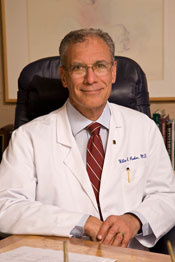Dr. Parker was invited to give a lecture at the MIT Science and Medicine Forum in October. Speakers were asked to choose “anything you want to talk about.” The audience was made up of MIT basic science researchers, medical doctors, and hospital administrators. I chose “Myomectomy, not Hysterectomy,” a topic that dominates my practice and […]

Topics of Interest
- About Uterine Fibroids
- Symptoms of Uterine Fibroids
- Fibroids, Fertility and Pregnancy
- Watchful Waiting or Medical Treatment
- Do You Need Surgery?
- Fibroids & Cancer
- Laparoscopic and Robotic Myomectomy
- Abdominal Myomectomy
- Hysteroscopic Myomectomy for Bleeding or Infertility
- Vaginal Myomectomy for Cervical Fibroids
- Questions Everyone Should Ask Their Doctor Before Surgery
- Caring for Yourself After Surgery
- Fibroid Photos
- Using MRI to decide the best treatment option for you
- Can New Fibroids Grow?
- Do You Need a Hysterectomy?
- Uterine Artery Embolization, Focused Ultrasound
- Fibroid Treatment Options Based on your Symptoms
- Adenomyosis
- Resources
- NEW: Download this website for free to your Kindle!
Tag Archives: laparoscopic myomectomy
Myomectomy, not Hysterectomy – Dr. Parker gives lecture at MIT Science and Medicine Forum
Myths You May be Told as to Why You Need a Hysterectomy Instead of a Myomectomy
Dr. Parker has just written an article for OBG Management, a free OB-Gyn journal with the largest number of readers of all the OB-Gyn journals. In this article, Dr. Parker debunks the myths that gynecologists have been taught about myomectomy and the myths that women are often told as the reasons why they should have […]
Reply to FDA regarding the use of power morcellators for fibroids
Jeffrey Shuren, M.D., J.D., the Director of the Center for Device and Radiological Health at the Food and Drug Administration, replied to an open letter from the Leiomyoma Morcellation Review Group. You can read the original open letter here, and view Dr. Shuren’s reply in the images below. The Leiomyoma Morcellation Review Group sent the […]
An open letter to the FDA regarding the use of morcellation procedures for women having surgery for presumed uterine fibroids
In November, 2014 the FDA ruled that power morcellation was contra-indicated in “the majority of women” having surgery for uterine fibroids due to the potential risk of spreading occult uterine sarcoma. Although problems with this ruling were immediately apparent, the passage of time has allowed for more clarity on the related medical issues. Prevalence of […]
How Common is Uterine Leiomyosarcoma? (LMS)?
There is a lot of confusing information circulating about morcellation and uterine leiomyosarcoma in the media since the FDA hearing on this issue a few weeks ago. I plan to post my analysis of the information, in segments, over the next week or two. This first post provides commentary about the numbers used in research […]
Morcellation – Write Congress
Joan, San Diego I’ve been feeling frustrated and concerned about the upcoming FDA meeting later this week on the power morcellator. My fear is that the FDA panel will get a very slanted view of the situation because not enough woman who have benefited from minimally invasive gyn surgery using a morcellator can take the […]
Laparoscopy for Large Fibroids
level of expertise and experience which will determine the largest size and the number of fibroids they are comfortable removing
Hysterectomy for Fibroids with Minimal Symptoms
Hysterectomy should not be necessary and you should seek a second opinion from a gynecologist who can offer you the other options in order to see what is right for you.
Fibroids after C-section
Should I toughen up and just get the surgery or go for a pap smear and try to hold off for menopause.
Dr. Parker and Telesurgery
On November 19th, gynecologic surgeon William Parker, MD, performed live telesurgery from Saint John’s Health Center for the World Congress of Minimally Invasive Gynecology that was meeting in Orlando, Florida. The broadcast consisted of a laparoscopic myomectomy (remove uterine fibroids using a laparoscope) and was transmitted to an audience of over 1,000 gynecologists from over 60 countries who were attending the conference. See video here.
Disclaimer: The ideas, procedures and suggestions contained on this web site are not intended as a substitute for consulting with your physician. All matters regarding your health require medical supervision.

Dr. William H. Parker is a board-certified Fellow in the American College of Obstetricians and Gynecologists. Dr. Parker is an internationally recognized expert in fibroid surgery and research. Based in San Diego, California, he is considered one of the best fibroid surgeons for abdominal and laparoscopic myomectomy in the United States and abroad. He has been chosen for Best Doctors in America and Top Doctors every year beginning in the late 90's.
- Welcome Back to Fibroid Second Opinion
- New video showing how Dr. Parker performs an abdominal (open) myomectomy
- Myomectomy, not Hysterectomy – Dr. Parker gives lecture at MIT Science and Medicine Forum
- Petition – Residency Requirement Committee
- Dr. Parker Joining Faculty at UC San Diego
- View all blog archives
Blog Categories

